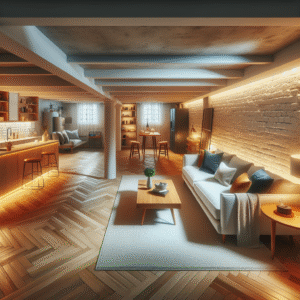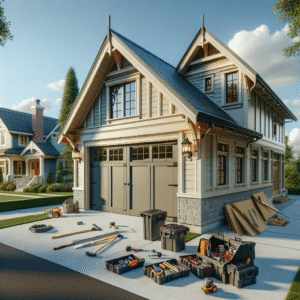When considering expanding your living space, understanding local zoning laws and building permits is crucial before embarking on a home addition. This knowledge not only ensures your project aligns legally with municipal regulations but also sets the stage for a seamless construction process. Let’s dive into how you can navigate these initial steps, choose the right contractor, and plan your budget effectively to enhance your home successfully and efficiently.
1. Understanding Local Zoning Laws and Building Permits for Home Additions
Before you start dreaming up your perfect home addition, it’s essential to get acquainted with the local zoning laws in your area. These regulations dictate what can and cannot be built on your property, affecting everything from the size of the addition to its placement and use. Checking with your local planning agency or building inspector is a great first step. They can provide guidance and information about necessary permits and any potential restrictions. This preliminary step not only prevents future legal headaches but also ensures that your addition will be built in compliance with local standards, potentially saving you time and money in the long run.
2. Selecting the Right Contractor for Your Home Addition Project
Choosing a skilled contractor is key to the success of your home addition. It’s not just about finding someone who can do the work, but finding a professional who understands your vision and can execute it with precision. Start by seeking recommendations from friends and family, checking online reviews, and browsing local directories like BuildNet. Once you have a shortlist, interview each candidate, ask for references, and review their previous projects to ensure they have the right experience and a reliable track record.
3. Cost Considerations and Budget Planning for Building a Home Addition
Realistically planning your budget for a home addition can prevent unwelcome surprises. Costs can vary widely depending on the scope of your project, materials chosen, and the contractor’s rates. Begin by defining a clear vision of what you want to achieve with your addition, then obtain multiple quotes to compare prices and services. Don’t forget to include a contingency fund for unforeseen expenses, which are common in big projects like additions. Being financially prepared ensures a smoother building process and helps maintain peace of mind through completion.
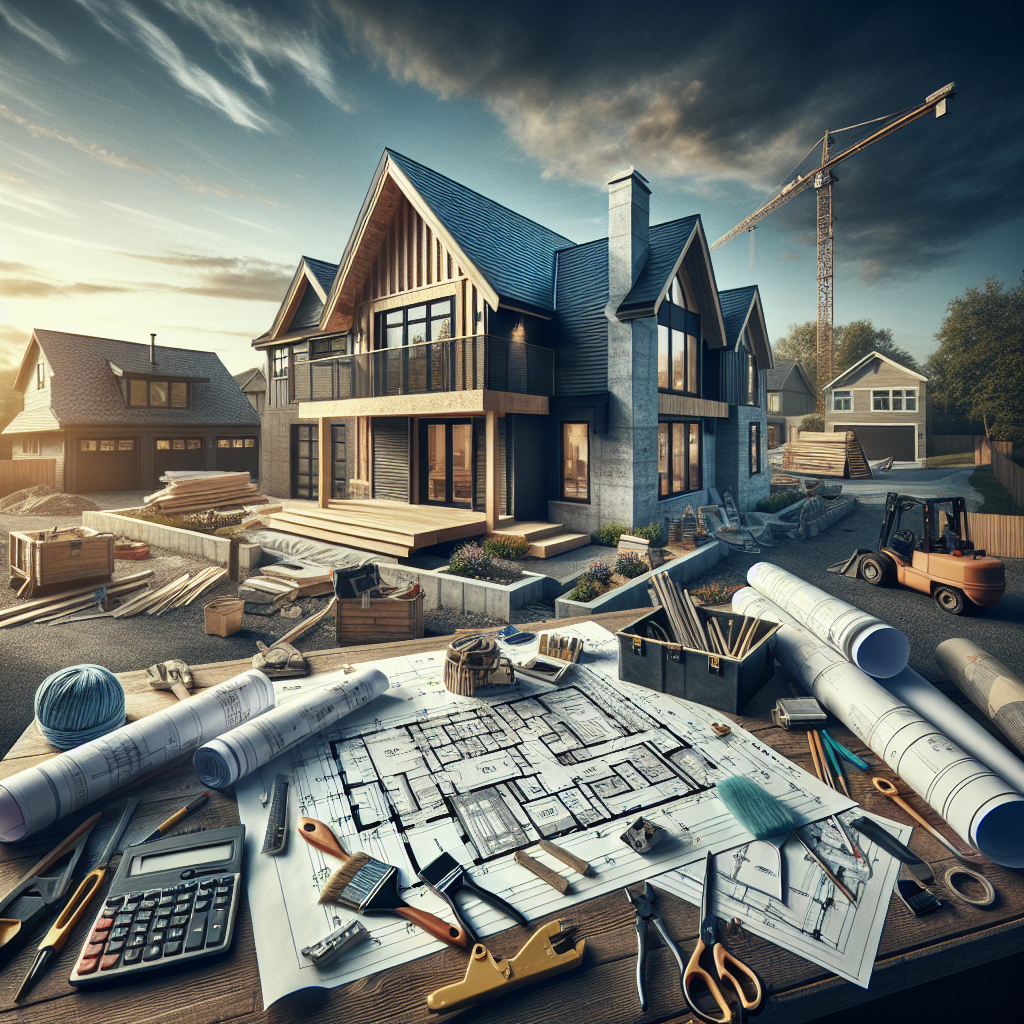
If you’re ready to take your home improvement or construction project to the next level, we can help! Find trusted contractors on BuildNet, whether you’re looking for renovations, new builds, electrical work, plumbing, or anything in between. Our directory connects you with qualified professionals who can make your vision a reality.
Understanding Local Zoning Laws and Building Permits for Home Additions
Embarking on a home addition project? That’s exciting! Before you start envisioning your new space, there’s some groundwork to lay—specifically understanding the local zoning laws and securing the necessary building permits. Let’s break down what you need to know to ensure your project goes smoothly and legally.
What Are Zoning Laws?
Zoning laws are local regulations that dictate how properties in certain areas can be used. These laws affect everything from the type of buildings that can be constructed to the specifics of their design and the activities permissible within them. For homeowners, zoning laws can define:
- The size and height of buildings
- Setback requirements from property lines
- The percentage of the land that can be covered by a building
- Usage of buildings (e.g., residential, commercial, or mixed-use)
Why should you care? Understanding these rules is crucial because they determine what you can and can’t do with your home addition. Ignoring them can lead to costly fines and even require you to undo your hard work.
Finding Your Local Zoning Laws
The process of finding zoning information can be as easy as a quick internet search or a phone call to your local planning department. Most municipalities have zoning details available online, which makes it easy to access from the comfort of your home. Here’s how to go about it:
- Visit your city or county’s official website and navigate to the “Planning” or “Building” section.
- Search for a zoning map or a zoning ordinance document.
- If available, use an address locator feature to find out the specific zoning regulations for your property.
- Don’t hesitate to call or email your local zoning office for assistance—they’re there to help!
Relevant, local-search friendly keywords such as “zoning laws in [Your City]” or “how to find property zoning in [Your City]” can also assist in your search.
Navigating Building Permits
Once you understand the zoning requirements, the next step is obtaining the necessary building permits. These are official approvals from your local government that allow you to go ahead with your construction project under the agreed conditions.
Why Permits Matter
Building without a permit can lead to penalties, increased costs, and problems when selling your home. Permits ensure that:
- Your addition is safe and complies with local building codes and standards.
- Your project is officially recorded, which is important for insurance purposes and future property assessments.
How to Get a Building Permit
Securing a permit is a straightforward process, though it may vary slightly by location. Generally, you’ll need to:
- Submit a permit application to your local building department.
- Include detailed plans of your proposed project, usually requiring the input of a professional architect or engineer.
- Pay a fee, which can vary depending on the size and scope of your project.
- Wait for the review of your plans. If approved, you’ll receive your permit. If not, you may need to make revisions.
It’s a good idea to check online for specific requirements in your area by searching for “building permits in [Your City]” or “applying for a building permit in [Your City].”
Engaging with Your Community
Lastly, don’t underestimate the value of engaging with your neighbors and community. Large construction projects can impact the whole neighborhood, and keeping your neighbors informed can help manage expectations and maintain good relationships. Plus, they might offer insights or share their experiences related to zoning and permits.
Remember, while the process might seem daunting, local governments are generally very helpful. They want to ensure that all constructions are safe and beneficial for the entire community. With the right preparation and understanding of local zoning laws and building permits, your home addition project will be set up for success!
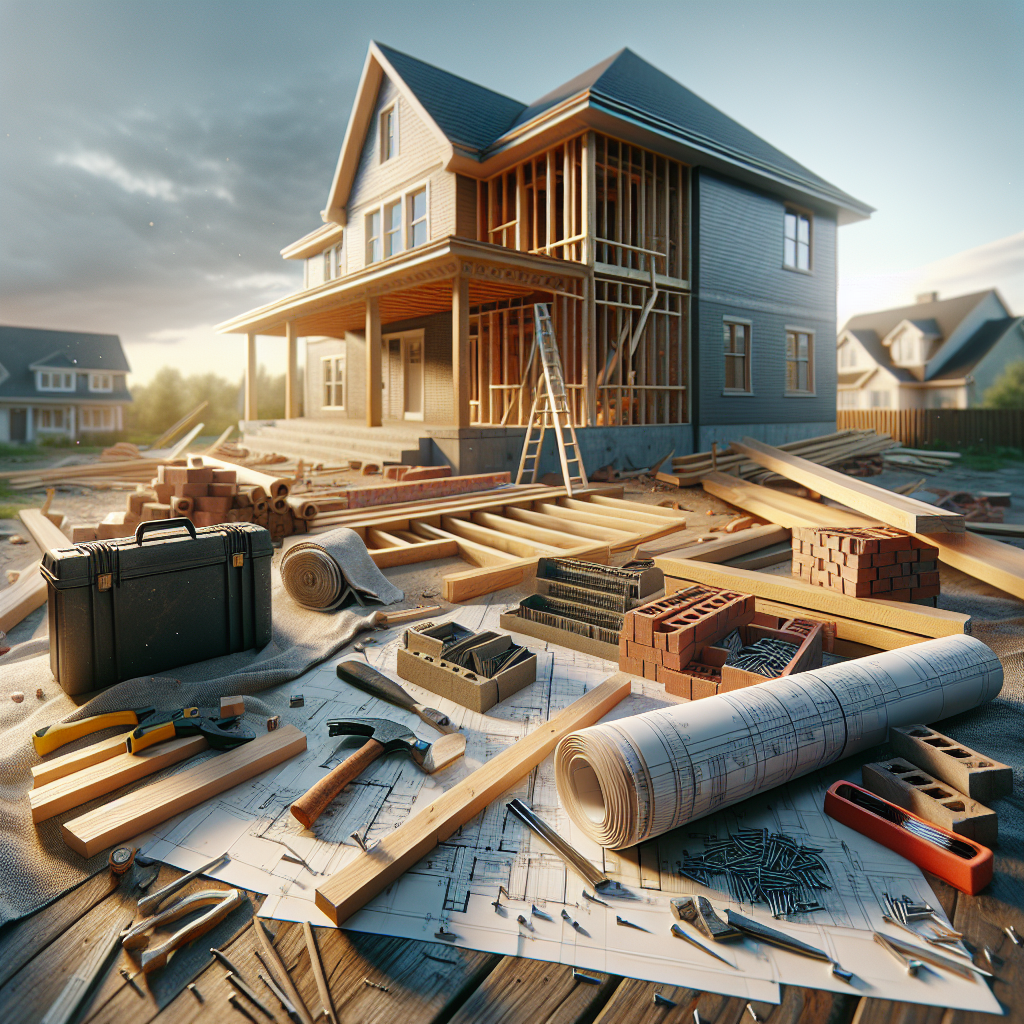
Selecting the Right Contractor for Your Home Addition Project
Embarking on a home addition project can be thrilling yet daunting. Among the pivotal decisions you’ll face is choosing the right contractor. This choice significantly influences the quality, timeliness, and overall success of your project. Let’s dive into how you can make this crucial decision with confidence, ensuring your dream addition becomes a reality.
Understanding the Importance of Selecting the Right Contractor
Imagine entrusting someone to build your dream space – it’s a big decision! The right contractor will bring your vision to life, adhering to your budget and timeline. They ensure adherence to local building codes, which simplifies later stages like selling your home or upgrading. On the flip side, the wrong contractor can lead to overextended budgets, prolonged timelines, and heartache. Thus, choosing wisely is paramount.
Starting Your Search
Begin locally! A local contractor will have a better grasp of the area’s zoning laws and building codes. Start with a simple online search for “best home addition contractors near me” or visit a dedicated directory like BuildNet to find vetted professionals in your area. These platforms often provide customer reviews and portfolios to help you gauge the quality and reliability of potential contractors.
Ask for Recommendations
Nothing beats personal experience. Ask friends, family, or neighbors who’ve recently undertaken similar projects about their contractors. Personal recommendations can provide insights that are not visible online, such as work ethic and day-to-day operations.
Scrutinizing Credentials and Experience
Once you have a list of potential contractors, it’s essential to verify their qualifications. Here are a few checkpoints:
- Licensing: Ensure the contractor is licensed to operate in your area. This not only affirms their legitimacy but also ensures they are familiar with local building codes and regulations.
- Insurance: A legitimate contractor will have liability insurance and worker’s compensation. This protects you from potential liabilities in case of accidents during the project.
- Experience: Look for a contractor with ample experience in home additions specifically. Check their portfolio for past projects similar to yours.
Conducting Interviews
Once you’ve narrowed down your list, arrange interviews. This is your opportunity to ask detailed questions about their approach to projects like yours. Discuss their suggested timeline, the materials they recommend, and their team’s structure. Here’s a brief guide on what to ask:
- How many home addition projects have you completed in the last year?
- Can you provide a detailed written estimate?
- What challenges do you anticipate for this project?
- How do you handle project changes or unexpected issues?
- Can you provide references from past projects?
Evaluating Communication Styles
During the interview, assess how well the contractor communicates. Effective communication is crucial throughout the project to ensure your vision is accurately translated into reality. You need someone who listens to your needs, explains things clearly, and responds promptly.
Understanding Quotations and Contracts
Once you’re satisfied with a contractor’s qualifications and communication style, the next step is to understand their financial proposal. A detailed, itemized quote will help you understand where every dollar is going. This transparency helps prevent disputes over unforeseen costs later on.
- Itemization: The quote should break down costs for materials, labor, and any other expenses.
- Payment Schedule: Be wary of contractors who demand a large upfront payment. A staggered payment plan that aligns with project milestones is standard.
- Contract: The contract should clearly outline every aspect of the project, from scope and cost to timeline and materials. It should also specify how changes to the project will be handled.
Checking Reviews and Past Work
Last but not least, take the time to check online reviews and previous work of the contractors. Platforms like BuildNet often feature reviews from past customers which can provide a real-world glimpse into what working with a particular contractor might be like. Additionally, if possible, visit a current job site managed by one of your potential contractors to see firsthand how they operate.
Choosing the right contractor is a cornerstone of a successful home addition project. By doing thorough research, conducting in-depth interviews, and carefully reviewing their past work and reputation, you can ensure that your home addition will be handled professionally and efficiently. Remember, a good contractor not only delivers excellent craftsmanship but also provides a smooth and stress-free experience.
Cost Considerations and Budget Planning for Building a Home Addition
Thinking about expanding your living space with a home addition? Whether it’s a sunroom, an extra bedroom, or a home office, extending your home can bring new dynamics and increase its value. However, embarking on such a venture requires careful financial planning and an understanding of the potential costs involved. Let’s break down the crucial aspects of budgeting for your home addition project.
1. Initial Cost Estimations
Before you dive into the world of construction, it’s essential to get a ballpark figure of what your home addition might cost. Various factors such as the size of the addition, the materials used, and the project’s complexity will dictate this. A basic framework to think about:
- Size and Scope: Generally, larger additions with more intricate designs will cost more.
- Material Choices: High-end materials like hardwood or granite will increase the budget.
- Location: Costs can vary significantly based on your geographic location and local building codes.
It’s a good idea to consult with professionals or use online tools to get a preliminary estimate. This will help you understand whether your vision aligns with your budget.
2. Detailed Breakdown of Potential Costs
Once you have a rough estimate, it’s time to refine these numbers. Here are some cost components to consider:
- Architectural Services: If your project is complex, hiring an architect might be necessary to ensure everything flows seamlessly with your current home structure.
- Building Materials: From basic construction materials to interior finishes, every choice will impact your overall expenditure.
- Labor Costs: This includes not just builders but also electricians, plumbers, and other specialists needed for the project.
- Permits and Inspections: Depending on where you live, you may need various permits, and these come with fees.
- Contingency Fund: It’s wise to set aside about 10-20% of your total budget for unexpected expenses.
3. Financing Your Home Addition
Funding a home addition can be a significant financial undertaking. Here are some popular financing options:
- Home Equity Loan: If you have equity in your home, this can be a cost-effective way to borrow.
- Personal Savings: Using your savings can help avoid interest costs, making the project more affordable in the long run.
- Construction Loan: Specifically designed for home construction projects, these loans often convert into a traditional mortgage after the construction is complete.
Each option has its pros and cons, depending on your financial situation and long-term plans, so consider discussing with a financial adviser.
4. Timing and Seasonal Considerations
The timing of your project can also impact the cost. Building during the off-season can sometimes be cheaper, as contractors have fewer jobs and might offer better rates to keep their crews busy. Additionally, material prices can fluctuate throughout the year, so purchasing materials during a low-demand season could save costs.
5. Long-Term Benefits vs. Immediate Costs
While the upfront costs of a home addition can be hefty, it’s important to consider the long-term benefits:
- Increased Home Value: A well-designed and executed addition can significantly increase your home’s market value.
- Enhanced Living Experience: More space could mean a better living environment for you and your family.
- Energy Efficiency: Modern materials and building techniques can improve your home’s energy efficiency, reducing utility bills.
When planning your budget, weigh these long-term benefits against the initial investment to make a well-informed decision.
6. Consult With Local Experts
Lastly, don’t underestimate the value of local knowledge. Consulting with local contractors and building specialists can provide insights specific to your area, helping you avoid common pitfalls and align your project with current market trends. Plus, local professionals can be invaluable in navigating zoning laws and building code requirements.
Planning a home addition is no small feat, but with the right budgeting strategy and a clear understanding of the costs involved, you can ensure your project not only meets your current needs but also adds value to your home in the long run. By taking the time to thoroughly plan and consult with the right professionals, you’re setting the stage for a successful build that lives up to your dreams.
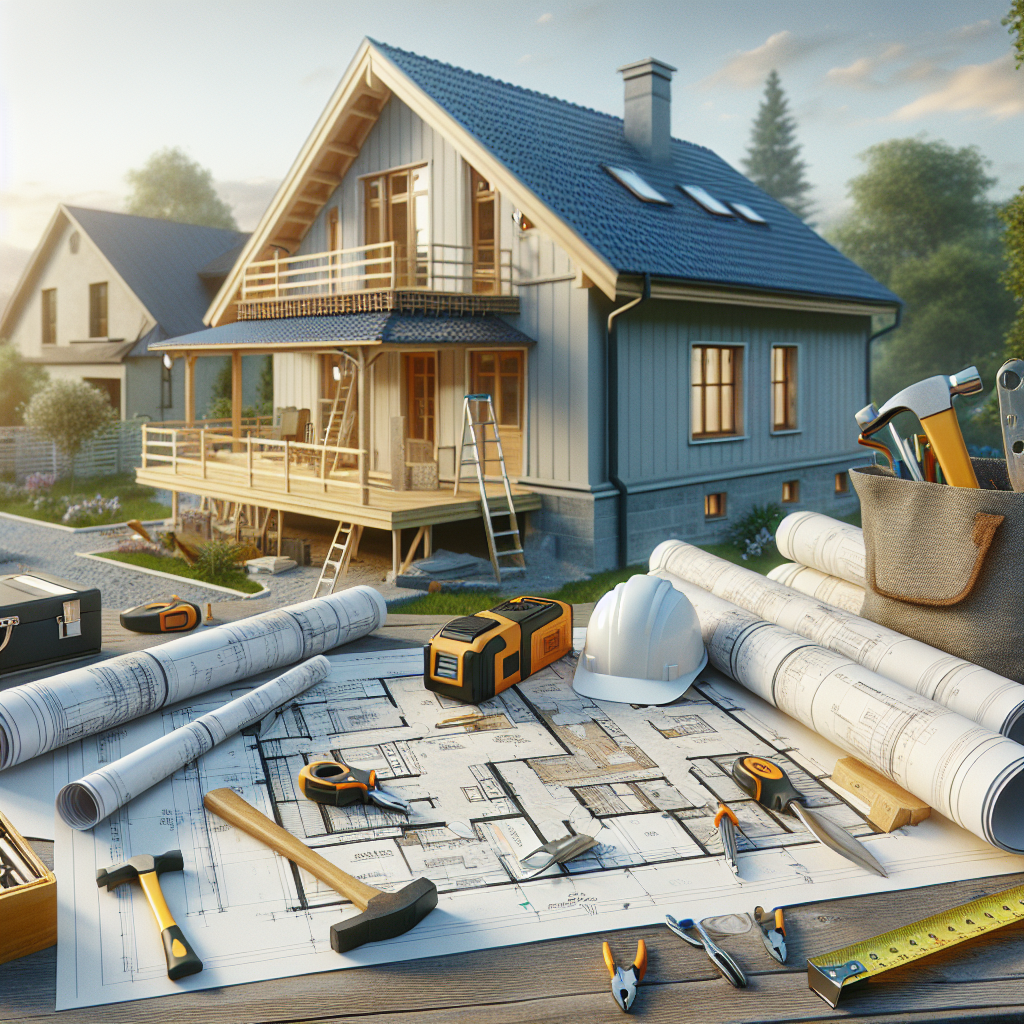
What Are Local Zoning Laws and How Do They Affect Home Additions?
Local zoning laws are regulations set by local governments that dictate how properties in certain zones can be used. These laws can affect everything from the size of the addition, its placement, and the types of materials used. Understanding these laws is crucial because non-compliance can lead to penalties, legal issues, or the need to modify or remove your addition post-construction. Always check with your local planning or building department to understand the specific requirements before starting your project.
Why Is It Important to Obtain a Building Permit for Home Additions?
Obtaining a building permit is a legal requirement for most construction projects, including home additions. It ensures that your project complies with local building codes, safety standards, and zoning regulations. A permit also allows building inspectors to review the project at certain stages, which helps to ensure everything is up to code. Skipping this step can lead to fines, and complications with future property sales.
How Do I Select the Right Contractor for My Home Addition Project?
Selecting the right contractor is crucial for the success of your project. Start by seeking recommendations from friends or family who have had similar work done. When you have a few candidates, check their credentials, licensing, and insurance coverage. It’s also beneficial to look at reviews and previous work. Conduct interviews to ensure they can match your specific needs and budget. This initial legwork will pay off with a smoother project experience.
What Are Some Typical Costs Associated With Building a Home Addition?
The costs can vary widely based on the size, location, materials, and complexity of the addition. Basic costs include materials, labor, permits, and potentially, architectural services. Additionally, unexpected costs can arise, so it’s a good idea to budget for more than the estimated cost to cover these potential discrepancies.
How Should I Plan My Budget for a Home Addition?
Begin by outlining all anticipated expenses including construction, materials, labor, permits, and any rental fees for equipment. It’s wise to consult with a contractor to get a detailed estimate and also factor in a contingency amount of around 10-20% of the total budget for unforeseen expenses. Planning financially for every phase of the project will help ensure that costs are kept under control.
Can Home Additions Add Value to My Property?
Yes, creating additional living space typically increases the value of your home. The exact value added can depend on the type of addition, the quality of construction, and the demand for similar features in your local real estate market. Consulting with a real estate expert can give you a clearer idea of how much value a home addition might add to your property.
What Should I Consider Before Starting a Home Addition Project?
Before diving in, consider the purpose of the addition, your budget, and the potential return on investment. Also, think about how it will affect the overall layout and aesthetics of your current home. Consulting local zoning laws and perhaps even neighbors can preempt any potential issues that might arise post-construction.
Conclusion
In summary, embarking on a home addition project requires a thoughtful approach, starting with a solid understanding of local zoning laws and obtaining the necessary permits. Choosing the right contractor is also crucial as it greatly influences the quality and success of your project. Budget planning is another essential component that can determine the smooth execution of your home addition. Above all, remember that a well-planned home addition not only provides additional space but can also significantly increase the value of your home.
If you’re ready to start planning your home addition, why not get a free quote from a qualified contractor? Head over to the BuildNet website to connect with professionals who can help you bring your home addition dreams to life. It’s easy, it’s convenient, and it’s the first step towards expanding your beautiful home. Happy building!

